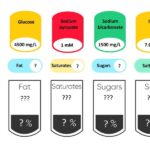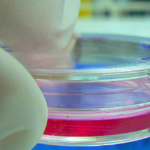Lynnea Waters
Lynnea has a PhD in Molecular Biology from University of California, Los Angeles, and is currently working as Medical Communications Senior Manager – Oncology at Amgen.
Articles by Lynnea Waters
Do you know what each ingredient in cell culture media does? Read on to take a look at the common ingredients and break down their roles.
Learn how UV radiation causes DNA mutations and discover more about the mechanisms underlying skin cancer, as well as the detrimental effects that UV light can have on our DNA-based experiments.
You may have heard about a breakthrough cancer therapy that engineers patient’s immune cells to fight their cancer using chimeric antigen receptor (CAR)-T cells. If you don’t live in the world of immunology, you may not know what a CAR is, or what it is used for. Here you’ll find a brief guide to CARs,…
Bacteria are the workhorses of many molecular biology laboratories, and mastering the basic techniques to manipulate bacteria is an important stepping-stone towards achieving great results. When isolating DNA from bacteria, it is important to start with a single colony to ensure a homogenous population of bacteria in your culture. Isolating a single bacterial colony from…
To many users, the flow cytometer is a magic box: put in cells, get out data. You click the button to tell it which colors to look at without much thought about how the machine does this. However, not all fluorophores are created equal—some configurations might exclude the spectrum you’re really looking for. Here’s a…
While you can observe mitotic cell cycle progression using immunofluorescence, flow cytometry is a great tool to delineate details that aren’t apparent by chromosomal morphology alone. DNA stains are a great way to get a general idea of what your cells are up to. There are also a number of other stains you can use…
Through many trials, and lots of error, I learned that there are many considerations for mass spectrometry that might not be obvious to you as a molecular biologist. Common contaminants, even in small quantities, can mask important peaks in your mass spec data and have a huge impact on the final results.
So you want to work with mouse B cells? Primary murine B cells are a difficult, yet fascinating system to work with and can help deepen your understanding of an immunological system. You can study many things with primary B cells, including: immune activation antibody production cell-cell interactions between immune cells and immune phenotype These…








